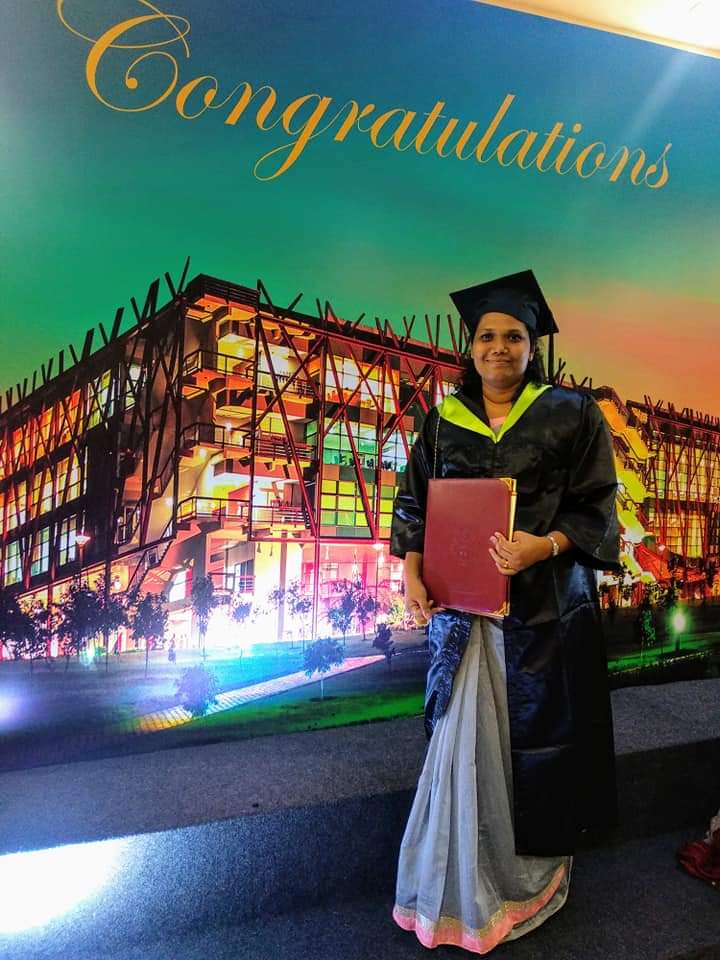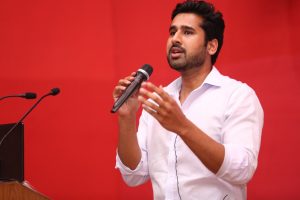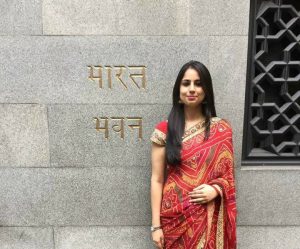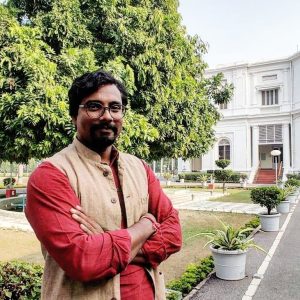For nine years Meenuka Matthew worked with international organizations including Caritas Colombo and International Young Catholic Students (IYCS) Manila, Philippines. She held high profile positions in these organizations in several locations including Paris, France and Kampala, Uganda. The experience brought her face to face with the reality of policy failure, particularly in the education sector and areas concerning conflict, security, and law in many parts of Asia. It prompted her decision to pursue higher studies and a career in public policy. That brought the Sri Lankan national to Jindal School of Government and Public Policy (JSGP). Now based in Delhi, Meenuka is the co-founder of Policy Talks, and she is taking public policy learning to schools. She talks about her experience at O.P. Jindal Global University (JGU) that helped to shape her views on public policy, and how public policy education in school can strengthen civil society and drive social change.
Meenuka had gained recognition for her work in Sri Lanka over a decade ago. In 2007, she was involved in the drafting process of the United Nations Youth Report. She had also worked with tsunami victims’ rehabilitation projects in her country. Soon enough she transitioned from being a student leader to an inspiring professional. Some of her professional roles included regional coordinator, project designer, and evaluator of programs in different parts of the world. She says these engagements helped her learn many things and gain deep insights. They made her realize the importance and the need for public policy education in South Asia. To work towards bringing about this change, she enrolled in the programme at JSGP. Her master’s programme was a huge learning curve and, being part of the Public Policy club at JGU, enabled her to come out on top of her long-term mission.
According to Meenuka, classroom teaching and practical experience at JGU were instrumental in her understanding of what public policy really means. She also recalls the campus environment, and the opportunity to engage with students from different backgrounds during lunch break. ‘We enjoyed the conversations and debates as much as the food. We invested the time on constructive thinking, and planning what we wanted to do with our lives, she recalls. Meenuka certainly knew what she wanted to do with her life and career. She was keen on taking public policy education beyond the confines of university programmes. That’s where Policy Talks had a big role to play. Policy Talks was formed with the goal to develop and facilitate public policy training across schools in India by promoting policy education for students.
Talking about the idea behind the initiative, Meenuka says, ‘It is vital to have public policy education as part of the school curriculum to give students an understanding of how public policy impacts the daily life of individuals, enabling them to have the choice to pursue it for higher studies.’ She admits that initially, it was challenging to convince traditional institutions and systems to consider public policy studies for school students. But the organization has grown in a short span of time, and today Policy Talks endeavors to provide public policy resources, opportunities, leadership, and tools needed by civil society to expand, enhance, and sustain their ability to advance social change. It also organizes Policy Dialogues in different cities and has become a bridge between think tanks and public policy institutions.
Meenuka’s interest in public policy also reflects in her research work, especially her paper on ‘Refugee Economies in South Asia’. As the co-founder of the organization, a mother, and a researcher, Meenuka wears many hats with remarkable poise. She candidly admits, ‘It does get challenging to manage different roles in life. But determination has made it possible to strive for and achieve what I think is important.’ That belief, passion, and determination have led to huge gains for public policy education in India.




